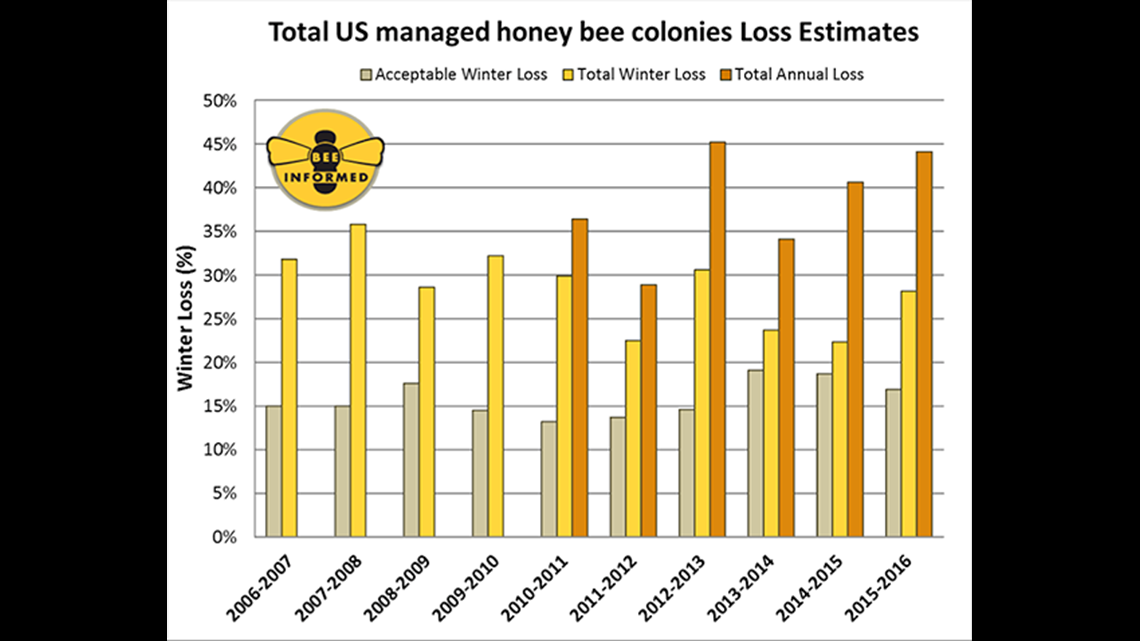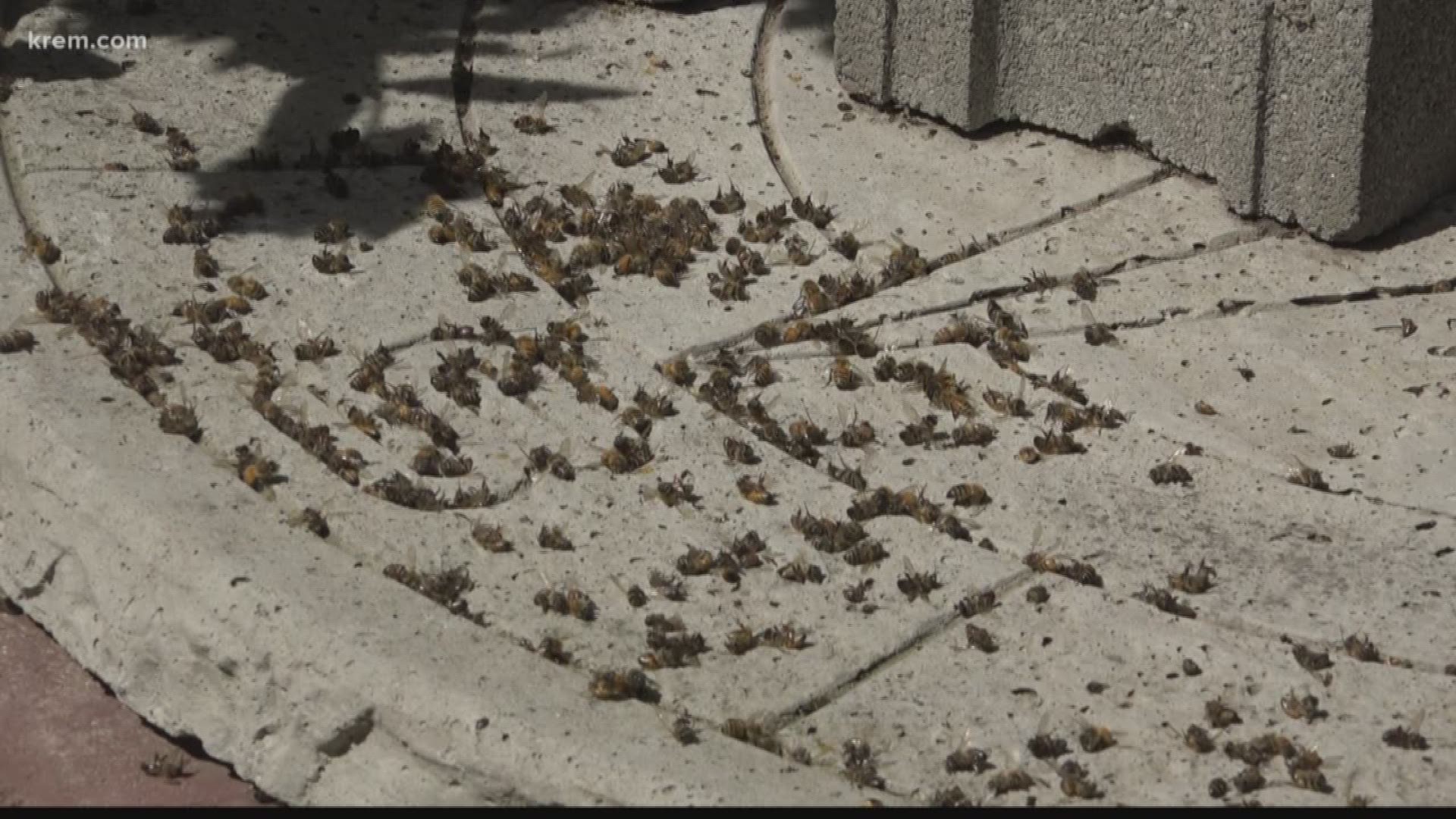SPOKANE, Wash. — When you see a bee buzzing around you while you enjoy a meal outside, it might be a little annoying, but you might be surprised to learn that chances are, they're the reason you have something in your hand to eat.
Bee populations are rapidly declining, so much so that extensive research is happening all over the country to save them.
Thousands of bees near Corbin Park found dead within the last week, and local beekeepers suspect pesticides sprayed nearby could be to blame.
Pesticides are just one of the threats to the bee population which is declining. "Bee Informed" collected data and research from multiple universities and found beekeepers lost 44% of their bee colonies between 2015 and 2016.


Hardworking is an understatement when it comes to these small insects. Bee's play a critical role in the world's food supply, but they're in trouble.
"We have the potential to really impact our food supply and the variety of food that we get to eat," Dr. Cynthia Faux.
Dr. Cynthia Faux is a professor with the Washington State University College of Veterinary Medicine. She said there's no one cause for the rapid deaths, there's several. This includes, habitat loss, climate change, pests (such as mites), and the big one - pesticide use.
"It's not necessarily pesticides that are targeting insects, but other kinds of chemicals that are put on flowers and lawns or whatever you have, those can be challenging too because it adds to the burden," she explained.
Local beekeepers believe pesticides are to blame and are concerned about their hives.
"They're the main pollinators for most of the crops we eat, that feed the animals that humans eat, and it's about care of the earth that we live in," said Emilee Bolan, a backyard beekeeper.
What bees do for people is enormous. They pollinate 1 in 3 bites we eat every day. The Honeybee Health Coalition said the insects are responsible for $22 billion dollars in North American agriculture.
"It's critical that we take care of these guys and figure out what we can do to sustain them because it's not sustainable what we're doing now, so we have to figure this out," Faux said.
So what can we do? Dr. Faux says to avoid pesticides and if you do, spray early in the morning or late at night. You can also create bee friendly habitats and stay informed about climate change.

